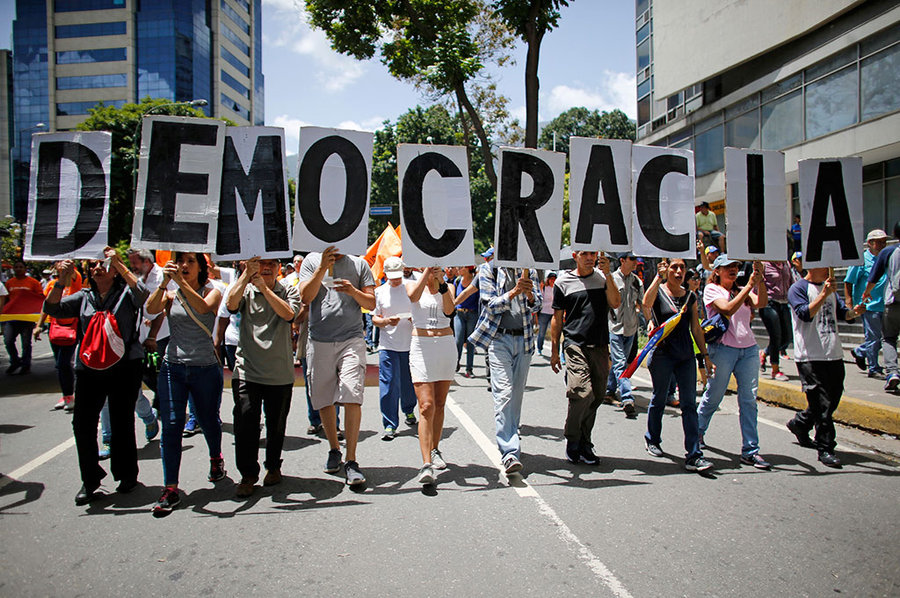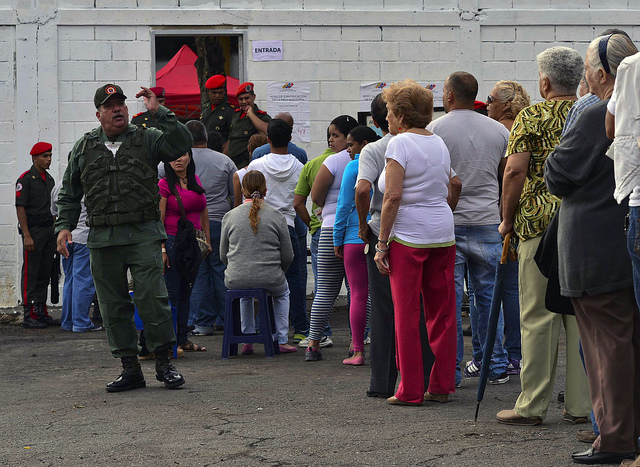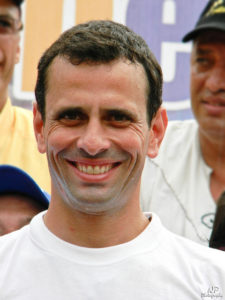Who Is Henri Falcón? A Look At Venezuela’s New Elections

If you were to Google almost anything involving the country of Venezuela as of March, I almost guarantee an article that will appear is the New York Times‘ “Why I Am Running for President of Venezuela” by Henri Falcón. The piece is hopeful, promising sweeping reform and warning against electoral boycotts. The article may come as a surprise, as the Venezuelan presidential elections were never supposed to be this early. In fact, the elections originally scheduled for December 2018 were rescheduled to just next month under the cries of turmoil and protest from the public. This “snap election”, as it is called, is a landmark shift for Venezuela. Will the United Socialist Party of Venezuela (PSUV) be out of power since the first time since Hugo Chavez’s election in 2002? Will the elections be fair? Will the party that is in power even matter towards fixing Venezuela?

In the opinion of Henri Falcón of the Progressive Advance Party, or independent candidate Javier Bertucci, the answer to all these questions is yes. So what do these candidates represent besides a change to Maduro’s status quo? For Javier Bertucci, it’s evangelism. A pastor in his daily life, Bertucci has gone on record that he is running as a religious leader in politics because politicians cannot complete their own jobs. Bertucci’s angel is one laced with religious fervour, arguing that corrupt government have led to a corrupt society, and that a morality shift must be applied to Venezuela before conditions can ameliorate. His campaign strategy has aligned with this: utilizing the Venezuelan Church for endorsements, promoting himself through charity work, and invoking Jesus Christ as a supporter. It’s not the worst strategy either. Venezuela is deeply Christian, with 88% of the Venezuelan population considering themselves Christian. Similarly, his campaign model follows the success of Fabricio Gerardo Alvarado Muñoz, a Costa Rican Evangelist who gained mass support for his religious-based grassroots campaigning. If Bertucci could emulate the success of Muñoz, the presidency could very well be his. However, this is most likely not the case. Reuters polls have shown that his lack of political experience has not made him look like a “necessary outsider”, as Bertucci has branded himself, but rather incompetent in the face of such intense and complex struggles. Similarly, national polls have shown that his name recognition among the three major candidates is the lowest, most likely due to Bertucci’s grassroots campaign strategy and lack of affiliation with a political party.
Then we have Henri Falcón of the Progressive Advance Party. Falcón is by far not the most popular option for Maduro’s replacement, but he seems to be one of the few options left. In fact, in a recent poll by DolarToday, Falcón polled only 2% of the popular vote, ranking behind 6 opposing candidates. But what Falcón has going for him is the fact that he has not been disqualified from the race by a crafty Maduro government, while most of his more popular opposition has. For instance, these elections have been significantly condemned internationally for Maduro’s removal of Leopoldo Lopez, who was nominated as the Democratic Unity Roundtable’s candidate, due to his involvement in government protests. Lopez, who represented the largest coalition of Maduro dissidents, was one of the President’s biggest threats, and with his removal, many Venezuelans have decided to boycott the elections.

This removal and boycott may not be a positive for the Venezuelan democracy or electoral legitimacy, but it is certainly a positive for Falcón who has become PSUV’s last remaining opposition. Falcón is a political man, who racked up two mayoral positions before becoming the governor of the Lara State, a position he has held for the last decade. Despite his political background, Falcón has not been a mindless follower of the Maduro government; in fact in 2012, he announced the formation of his own political party, the Avanzada Progresista, or Progressive Advanced, which espoused anti-Chavinista, progressive ideology. Additionally, Falcón allied his party with the Democratic Unity Roundtable’s 2012 presidential candidate Henrique Capriles in hopes that he would defeat Nicolas Maduro, all while holding a precarious title, as one of three, out of 23, governors of Venezuela to oppose Maduro.

While Falcón may be anti-PSUV and anti-Maduro, where his unpopularity lies is his moderation. Venezuela is in a time of chaos, where hatred, protest, and rioting is commonplace. Falcón, on the whole, however, has disagreed with this approach, advocating for a moderate and pragmatic discourse to be taken with the Maduro government. Falcón, for instance, has stated that “we must end the polarization that has caused so much damage”, and has called for protesters, most frequently tied to the Democratic Unity Roundtable, to put down their arms in hopes for peace. “Unity” is the message Falcón has hammered throughout his campaign. The problem with this? In such a radicalized society, centrism makes no one happy. Chavinistas refuse to support Falcón based on his opposition to the current socialist government, and radicals would rather abstain from the vote in protest than allow a ‘Maduro sympathizer’ to take over. The question at hand seems to be, will protesters of Maduro hate his regime enough to vote for a moderate such as Falcón?
Polls seem to suggest, that, yes, this is the case. In a poll by the Atlantic Council, 69% of Venezuelans, 58% of whom are anti-PSUV, have stated they will vote regardless of unhappiness with the election at hand. However, even with opposition voting in full effect, this does not discount Nicolás Maduro, who has, as polls shown, maintained steady support through the turmoil. Additionally, Maduro’s popularity has risen to the highest it has been in quite a while, at 31%, which may signal a maintenance of his presidency. However, much can change in the next month before people go to the ballot boxes in late April. The world will be watching, and it should; in an election marred by corruption and government intervention, the results of these elections are not only pressing to Venezuela, but to all those who uphold democracy.
Edited by Benjamin Aloi
